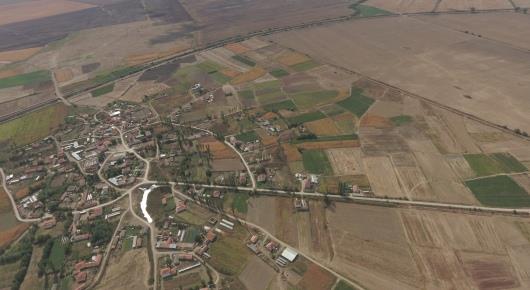Twelve Macedonian sites selected for land consolidation

The EU-funded MAINLAND project, implemented by FAO, has reached a key milestone with the selection of 12 land consolidation sites in the Republic of North Macedonia.
Small-scale farmers in the country account for roughly 87 percent of the total agricultural production value, but due to unfavorable land structures – the average farm size is below 2 hectares, and the land is highly fragmented – farms are low in agricultural productivity and competitiveness when compared to most European Union member countries.
The MAINLAND project aims to fix that.
“Land consolidation tailor-made to the specific situation in the country is an effective instrument to address structural problems with land fragmentation and small farm sizes,” said Morten Hartvigsen, land tenure officer at the FAO Regional Office for Europe and Central Asia in Budapest.
“I sincerely hope that the landowners and farmers in the 12 selected communities will strongly engage in the land consolidation process and in this way be able to benefit from the project.”
The selected communities are: Stojakovo in Bogdanci Municipality; Logovardi, Trn, Opticari, and Zabeni in Bitola Municipality; Leshani in Debarca Municipality; Cheshinovo, Sokolarci, Spanchevo, and Chiflik in Cheshinovo-Obleshevo Municipality; Carev Dvor in Resen Municipality; and Monospitovo in Strumica Municipality.
The selection of these land consolidation projects is the culmination of a series of preparatory activities that took place over the past several months.
Preparations began with the development of methodology for selecting land-consolidation sites and continued with activities related to training of the Ministry of Agriculture, Forestry and Water Economy and National Extension Agency staff to support local landowners and farming communities in the process of preparing and submitting expressions of interest for land consolidation projects.
In November 2017, the project organized regional workshops in Gostivar, Bitola, Strumica, and Stip to increase local awareness and understanding of land consolidation and to explain how farmers and landowners could apply for land consolidation.
These efforts resulted in 40 expressions of interest for land consolidation projects submitted from different local communities in December 2017. After evaluation against a set of selection criteria, a final selection was made of 12 communities with the highest potential for and interest in land consolidation.
The communities were ranked against such criteria as the size of the land consolidation project area, the level of fragmentation, the size of agricultural land parcels, the percentage of adjudicated agricultural land, terrain topography, the presence of perennial crops and other immovable objects in the area, and the interest of local farmers and their commitment to engage in the land consolidation process.
A next step for the project is to launch an open tender to conduct feasibility studies in the selected areas. The main goals of these studies will be to make a detailed assessment of the initial situation, confirm the readiness of landowners and users to engage in the process, reveal individual preferences, and examine whether other pre-conditions for a successful implementation of the land consolidation are in place. Based on the situation analysis, the studies will provide recommendations for the best land consolidation approach in each area and will identify and prioritize needed investments in new access roads, drainage, and irrigation infrastructure, depending on the needs in each community.
This land consolidation project is part of a region-wide initiative aiming to empower smallholders and family farms for improved rural livelihoods and poverty reduction.
12 March 2018, Skopje, the Republic of North Macedonia
